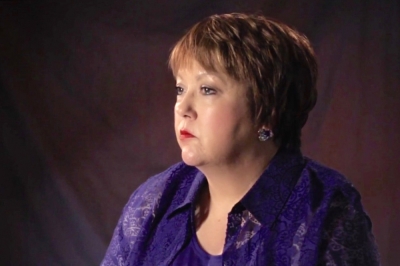Fetuses Are People, Hillary Said; Let's Make Sure Our Laws Agree

This election year we have heard political candidates saying, "I don't believe there's any constitutional protection for the unborn" and — in an admission by Hillary Clinton that stunned both sides of the abortion debate — "The unborn person doesn't have constitutional rights."
Infuriating, isn't it? Even her pro-abortion allies realize how admitting the existence of an "unborn person" damages their cause, which includes partial birth abortion and abortion on demand through the ninth month.
But does the U.S. Constitution grant rights to lives in the womb? If so, why does it matter?
From ancient history to present day, lives in the womb have been protected by law. Today, fetal right to life is part of the constitutions of Chile, the Dominican Republic, Ecuador, El Salvador, Guatemala, Hungary, Ireland, the Philippines and Slovakia.
Peru declares the unborn "a rights-bearing subject in all cases that benefit him." Madagascar specifically grants pre-born babies the right to free public health care.
In the U.S., as of 2014, 38 states provide certain levels of legal protection for lives in the womb; and 23 of these states protect the fetus from conception until birth. All U.S. states, by either statute, court rule or case law, permit a guardian ad litem to represent the interests of the unborn.
The Unborn Victims of Violence Act was passed by Congress in 2004 to define violent assault against pregnant women as being a crime against two victims: the woman and the fetus she carries. In addition, certain countries grant the baby in the womb inheritance rights.
Since the founding of our country, the unborn in the U.S. had rights under the Bill of Rights, specific protections under state laws (which drew upon English Common Law for their meaning and intent) and, later, immunities protected by the 14th Amendment ratified in 1868.
However, in 1973, the Supreme Court essentially declared state laws unconstitutional in its Roe v. Wade decision—making the right to life a matter of constitutional law. Ever since, the issue of personhood of the life in the womb has been a topic of heated debate.
Yet this decision ignored a key question: Where do rights come from? They don't come from the government, because then they wouldn't be rights; nor from the majority (citizens), nor from the delivery doctor or hospital at birth. Rights come from our Creator, as the Declaration of Independence affirms: "We hold these truths to be self-evident that all men are created equal, that they are endowed by their Creator with certain unalienable Rights, that among these are Life …"
It is a strange society we live in. Consider a woman who, on her way to keep an appointment with an abortionist to end the life of her child growing in the womb, suffers a vehicular accident resulting in the injury or death of that child.
She may now sue and collect damages … not only for her injuries, but also for any injury to her child if that tragically occurs — the same child whose life was about to be terminated. How can a baby in the womb gain and lose personhood status so suddenly?
Isn't it ironic that, despite so much bickering, it's the states picking up the mantle to protect the unborn whom our country's highest court denies. "Missouri is just one of many states which have recently passed a personhood measure," says Josh Craddock of Personhood USA. "Personhood bills in Missouri, Alabama, Oklahoma, and South Carolina seek to finally recognize that all human beings, including unborn children, are persons with rights and dignity under the law."
State by state, amendments are being passed saying the unborn are persons and have rights — the most important being the right to life. As Missouri's proposed amendment states, "All persons, including unborn human children at every stage of biological development, have a natural right to life. When government does not confer this security, it fails in its chief design."
There is also an important effort underway in Congress. In 2002, President George W. Bush signed into law the Born-Alive Infants Protection Act — a good first step, yet without any legislative "teeth" to ensure legal protection.
Now Senator Ben Sasse (R-Nebraska) has introduced a bill which strengthens the original law. Not only does it require health care practitioners to treat babies born alive after failed abortion attempts with every available resource, but it also penalizes abortion providers who refuse and thus intentionally end the lives of infants born alive.
The Born-Alive Abortion Survivors Protection Act (S. 2066), which passed the House by 248-177 majority vote and is expected to receive a vote soon in the U.S. Senate, enables the mother of a child born-alive to seek relief in the event an abortionist kills her infant.
Giving vulnerable women more legal options sounds like something all citizens should agree on!
I've already reached out to my two senators to encourage them to support this vital pro-life effort led by Senator Ben Sasse — which provides much-needed accountability to protect babies born alive.
Every federal and state legislator who bravely stands for life and for the unborn should be applauded. Much work remains to be done, and only the voice of many citizens can sway what happens on Capitol Hill. May we vote for pro-life leaders and hold those in office accountable — urging them to defend the weak and powerless in our society.





















